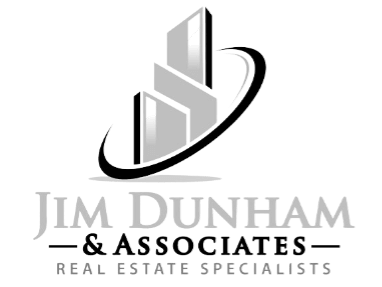The debate between leasing and owning has been long-standing in the business world, with valid arguments for both sides. But which option should you choose for your long-term success?

Leasing commercial real estate can be a great way to get your business started while buying a property can be intimidating, but the return on investment is worth it. Not only does owning your own space offer financial stability, but it also gives you control over your business operations and an asset that can appreciate in value over time. For many business owners, the decision to buy or lease commercial real estate is a major one. There are pros and cons to both leasing and buying, but ultimately, buying is the better option for those looking to maximize their returns. It is important you understand the Difference between Leasing and Owning Commercial Real Estate.
Why buying commercial real estate is better than leasing:
- You’ll have more control over your space.
When you own your commercial space, you’ll have the freedom to make changes and improvements as you see fit. As a lessee, you’re at the mercy of your landlord when it comes to making changes to your space. If you want to renovate, expand, or otherwise change anything about your office or retail space, you need to get permission (and likely pay a premium) from your landlord, which can be a hassle and can put a damper on your plans.
- Your monthly payments will stay the same.
With a lease, your rent can go up every year, which can be unpredictable and tough to budget for. When you own your property, your monthly payments will stay the same, giving you more stability and peace of mind.
- You’ll build equity in your property.
Every payment you make toward owning your commercial real estate builds equity in the property, which is an investment that will pay off in the long run. When you lease commercial property, you’re essentially renting it from the owner. While you may have some flexibility in terms of renewal and renegotiation, at the end of the day, you don’t own the property. This means that you’re not building any equity in the space and you’re not able to make any long-term improvements that could increase its value. With leasing, you’re essentially throwing money away with no return on investment.
- You may be able to get tax breaks.
Owning commercial real estate comes with a number of potential tax advantages that can save you money in the long run. When you own a property, you can deduct the interest paid on your mortgage and any other operating expenses from your taxes. This can result in significant tax savings over the life of the loan which further increases your return on investment. Talk to your accountant or financial advisor about what tax breaks you may be eligible for as a property owner.
- Generate Income.
When you buy a property, you have the potential to generate income from rent (assuming you don’t occupy the entire space yourself). This isn’t the case with leased properties – your only return comes from the difference between what you paid in rent and what you could have earned by investing that money elsewhere.
It’s clear that buying commercial properties can offer a range of exciting opportunities. However, just as with any investment, there are also potential downsides and challenges to consider:
Cons of Buying a Commercial Property:
- High Initial Investment and Financing Challenges.
One of the primary drawbacks of buying commercial real estate is the substantial initial investment required. Depending on the size and location of the property, the initial purchase price can be quite high. This can be a barrier for some businesses, particularly small businesses or those just starting out. Additionally, securing financing for commercial real estate can be challenging. Lenders typically impose stricter eligibility criteria, higher down payment requirements, and higher interest rates for commercial loans.
- Ongoing Costs and Maintenance.
When you invest in commercial real estate, the expenses don’t end with the purchase price. Operating and maintaining a commercial property can be costly. You’ll be responsible for various ongoing expenses, such as property taxes, insurance, utilities, maintenance, repairs, and potentially property management fees. These costs can eat into your profits and require careful financial planning and budgeting.
- Market Volatility and Risk.
Commercial real estate markets can be subject to volatility and fluctuations, just like any other investment market. Economic downturns or shifts in market demand can affect the occupancy rates and rental prices of commercial properties, potentially impacting your income stream. It’s important to conduct thorough market research and assess the stability and growth potential of the area before making a purchase.
- Tenant Management Challenges.
Dealing with commercial tenants can be complex. Commercial leases often involve longer-term agreements, more negotiation, and higher tenant expectations. Finding reliable, creditworthy tenants can be time-consuming, and vacancies can significantly impact your cash flow. Additionally, commercial properties may require more regular interaction with tenants, addressing their specific business needs, and handling lease negotiations or terminations. Hiring a property management company would be ideal especially for larger properties.
- Limited Liquidity.
Compared to other investments, commercial real estate is relatively illiquid. Selling a commercial property can take time, especially during market downturns or when faced with unfavorable economic conditions. If you need to access your funds quickly or wish to diversify your investment portfolio, the limited liquidity of commercial real estate can pose a challenge.
- Regulatory and Legal Complexities.
Navigating the regulatory landscape and legal complexities of commercial real estate can be demanding. Zoning regulations, environmental assessments, building codes, and lease agreements all require careful attention and expertise. Non-compliance or legal disputes can result in substantial financial losses or delays in your investment plans.

While investing in commercial real estate offers numerous advantages, it’s important to weigh them against the potential drawbacks. High upfront costs, ongoing expenses, market volatility, tenant management challenges, limited liquidity, and regulatory complexities are all factors to consider. Careful research, due diligence, and engaging professionals such as commercial real estate brokers, attorneys, and accountants can help mitigate some of these risks and maximize the potential benefits. Ultimately, a well-informed decision based on a thorough understanding of both the pros and cons will set you on the path to successful commercial real estate investment.
We’re here to guide you as you navigate the dynamic and rewarding world of commercial property investment. If you like this content, make sure to follow these related topics:
- 5 Key Considerations When Buying Commercial Property For Your Business
- The Benefits of Investing in Commercial Real Estate
- Difference between Leasing and Owning Commercial Real Estate
- Navigating Common Provisions in Commercial Real Estate Purchases
- A Buyer’s Guide: What You Need To Understand Before Signing A Commercial Lease
- The Ripple Effect of Rising Interest Rates on Commercial Property Sales Prices
- Difference Between A Lease vs. Buy Analysis



Comments (0)